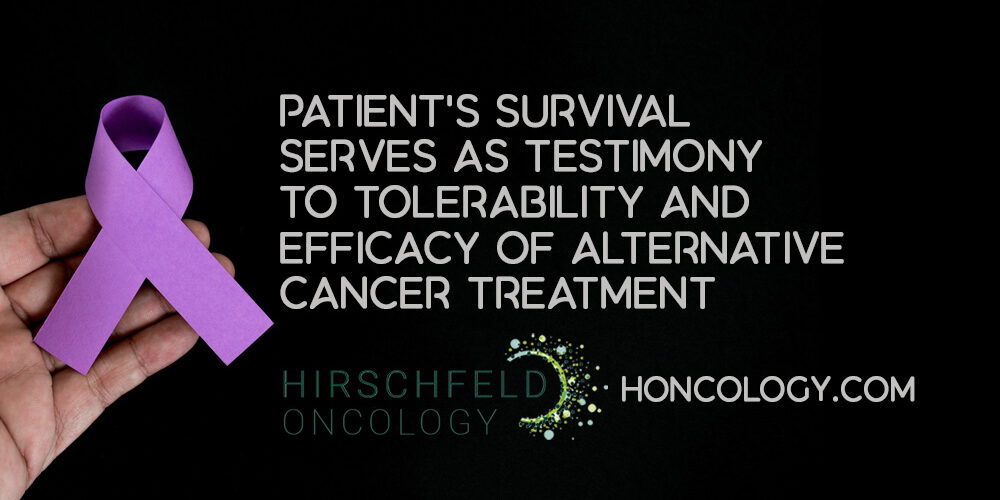Navigating Cancer Treatment with Resilience and Support
The Challenges of Cancer Treatment Side Effects
Cancer treatment often involves various therapies such as chemotherapy, radiation, surgery, and targeted drugs. While these therapies aim to eliminate cancer or control its growth, they can cause a range of challenging side effects. Common issues include fatigue, nausea, hair loss, cognitive changes (known as 'chemo brain'), digestive problems, and immune suppression. These side effects can affect patients physically and emotionally, reducing their overall quality of life.
Managing Side Effects to Enhance Quality of Life
Effectively managing side effects is crucial in helping patients maintain strength and well-being during treatment. Strategies include medication to control nausea, nutritional support for appetite changes, gentle exercise to combat fatigue, and psychological support to address anxiety and depression. Open communication with healthcare providers allows for personalized care and timely interventions, helping to reduce discomfort and prevent complications.
Comprehensive Cancer Care and Support
Modern cancer care embraces a multidisciplinary approach that integrates medical treatment with supportive and palliative care services. This holistic care includes symptom management, emotional counseling, nutrition guidance, and rehabilitation. Patients benefit from teamwork involving oncologists, nurses, psychologists, dietitians, and social workers who coordinate care tailored to individual needs. Support systems such as patient education and peer groups further empower patients, helping them sustain resilience and improve their quality of life throughout their cancer journey.
Key Facts List: Cancer Treatment Communication, Management, and Support
- Open, honest communication with healthcare providers is essential for prompt symptom management.
- Maintaining a detailed symptom diary aids personalized care and treatment adjustments.
- Shared decision-making involves patient collaboration to align treatment with personal values and goals.
- Engaging multidisciplinary teams improves symptom management and addresses physical, emotional, and psychosocial needs.
- Dietary modifications, like small meals and hydration, help manage nausea, constipation, diarrhea, and appetite loss.
- Light exercise and stress-reduction techniques can reduce fatigue and improve mood during treatment.
- Medications, including anti-nausea and pain relievers, are vital for managing treatment side effects effectively.
- Supportive care involves palliative, psychological, and rehabilitative services to enhance well-being.
- Emotion-focused therapies such as CBT and support groups help manage anxiety, depression, and emotional distress.
- Hirschfeld Oncology integrates scientific advancements and compassionate care under experienced leadership to optimize patient outcomes.
1. Collaborative Symptom Monitoring and Communication with Your Healthcare Team

Importance of open communication about symptoms and side effects
Open, honest communication with your healthcare team is essential during cancer treatment. It ensures side effects like fatigue, nausea, changes in appetite, or cognitive difficulties are promptly addressed. Reporting symptoms early helps prevent complications such as infections related to low white blood cell counts or severe dehydration from diarrhea or vomiting. Clear communication also fosters trust and better understanding, enabling your providers to tailor support to your needs. For more on Effective communication with healthcare providers and Communicating side effects to care team.
Keeping detailed records of side effects for personalized care
Maintaining a symptom diary or record of side effects can greatly aid in personalized care. Tracking the timing, severity, and nature of symptoms over treatment cycles provides valuable information for your healthcare team to adjust medications, recommend specific interventions, or modify treatment plans. For guidance on Keeping Records of Chemotherapy Side Effects and Managing chemotherapy side effects.
Role of shared decision-making in treatment planning
Shared decision-making involves patients actively collaborating with their healthcare providers. This approach considers the benefits and potential side effects of treatments alongside personal values and lifestyle. By discussing treatment goals, tolerability, and quality of life priorities, patients can make informed choices that align with their preferences. Learn more about Shared decision-making in cancer treatment and Patient preferences for quality of life.
Engaging multidisciplinary teams including supportive care specialists
Modern cancer care often involves a multidisciplinary team including oncologists, palliative care specialists, nurses, dietitians, social workers, and psychologists. This team works together to manage symptoms comprehensively and provide supportive care addressing physical, emotional, and psychosocial needs throughout the cancer journey. See details on Supportive care in cancer and Supportive Care Services.
Effective communication combined with symptom monitoring enhances symptom control, improves quality of life, and supports treatment adherence, making it a cornerstone in cancer care management. For more strategies, visit Coping Strategies to Improve Quality of Life.
2. Personalized Nutritional and Lifestyle Interventions to Combat Side Effects

How can dietary modifications help manage common cancer treatment side effects?
Cancer treatments can cause nausea, constipation, diarrhea, and appetite changes that impact nutrition and well-being. Managing these symptoms through tailored dietary changes is essential.
- Nausea: Small, frequent meals often help; including ginger, lemon, or peppermint can reduce nausea. Avoid greasy or strongly flavored foods.
- Constipation: Increased fiber intake from prunes, whole grains, legumes, and fruits, combined with adequate hydration, helps maintain regular bowel movements.
- Diarrhea: Eating bland, nutrient-dense foods and rehydrating with electrolyte-rich fluids are beneficial. Working with a dietitian to balance fiber intake ensures better control. (see more at Managing Cancer Side Effects)
- Loss of Appetite: Scheduled meals with high-calorie, high-protein options, and calorie-dense additions like nuts, oils, and full-fat dairy products enhance nutritional status and energy. For additional strategies, refer to Managing chemotherapy side effects
What hydration strategies prevent dehydration during treatment?
Side effects like nausea, vomiting, and diarrhea increase the risk of dehydration. Drinking 8 to 10 glasses of fluids daily, including water and electrolyte solutions, helps maintain hydration. Sipping fluids steadily throughout the day and avoiding caffeine and alcohol contribute to optimal fluid balance. Additional hydration tips can be found in Managing Chemotherapy Side Effects and Managing Treatment Side Effects.
How does light exercise reduce fatigue and improve mood?
Fatigue is a prevalent and debilitating side effect during cancer treatment. Incorporating light physical activity, such as walking or gentle yoga, helps combat tiredness by boosting energy levels, enhancing circulation, and improving mood. Balancing activity with proper rest and planning tasks around energy peaks can optimize daily functioning. For more on managing fatigue, see Managing Fatigue during Chemotherapy and Role of lifestyle medicine in cancer care.
What lifestyle medicine principles support overall well-being?
Lifestyle interventions targeting sleep hygiene and stress management significantly improve quality of life during cancer care. Establishing relaxing bedtime routines promotes better sleep, while mindfulness practices, meditation, and engaging in enjoyable hobbies reduce stress. Together, these strategies assist both physical recovery and emotional resilience throughout treatment. Comprehensive insights can be found in Coping Strategies to Improve Quality of Life, psychological interventions for cancer patients, and integrative therapies in cancer care.
3. Utilizing Pharmacological and Supportive Care Approaches for Symptom Relief

Use of Medications for Managing Side Effects
Medications play a crucial role in alleviating common side effects experienced during cancer treatment. Anti-nausea drugs are routinely prescribed to prevent and control nausea and vomiting, which are frequent complications of chemotherapy and some radiation therapies. Pain management often involves a combination of medications tailored to individual needs, from mild analgesics to stronger opioid treatments, ensuring effective relief. Fatigue, a pervasive issue, can be improved by balancing rest and activity, with some patients also benefiting from medication under medical guidance (Managing chemotherapy side effects).
Protective Measures Against Hair Loss and Neuropathy
Hair loss, or alopecia, affects many patients undergoing chemotherapy. Scalp cooling techniques significantly reduce the risk of hair loss by constricting blood vessels and limiting drug delivery to hair follicles. For neuropathy, which manifests as tingling or numbness often in the hands and feet, protective measures include using cooling gloves and socks during infusions to minimize nerve damage. Additionally, lifestyle adjustments and protective clothing help manage symptoms (Chemotherapy Side Effects).
Comprehensive Supportive Care Services
Supportive care encompasses a multidisciplinary approach involving palliative care specialists, psycho-oncology teams, dietitians, and rehabilitation professionals. These services focus on managing symptoms, alleviating treatment side effects, and addressing psychological, social, and spiritual needs. Rehabilitation programs assist in restoring physical function and independence, while psycho-oncology offers mental health support to help patients cope with emotional distress (Supportive Care Services, Managing Distress).
Integrative Therapies to Enhance Well-being
Complementing conventional medicine, integrative therapies in cancer care such as acupuncture, meditation, yoga, and music therapy have demonstrated benefits in reducing symptoms like pain, anxiety, and nausea. These therapies promote relaxation and emotional resilience, contributing to improved quality of life during treatment. However, patients should always discuss complementary approaches with their healthcare providers to ensure safety and appropriateness within their treatment plan (Cancer and Complementary Health Approaches).
4. Fostering Emotional and Psychological Well-being during Cancer Treatment

Why is managing mental distress like anxiety and depression crucial during cancer treatment?
Mental distress, including anxiety and depression, often arises during cancer care and can negatively impact quality of life. Addressing these issues early improves emotional resilience and coping capacity. Patients benefit greatly from recognizing distress as a common experience and seeking timely help, which leads to better overall well-being. For detailed guidance, see Managing Distress.
What therapies support emotional well-being for cancer patients?
Cognitive behavioral therapy (CBT) has proven effective for cancer patients, helping them reframe negative thoughts and enhance mental health. Delivered individually or in groups, CBT adapts to patient needs and can be in-person or online. Additionally, support groups and peer networks offer shared experiences and practical coping strategies, fostering a sense of community and understanding. More about this can be found in Cognitive behavioral therapy for cancer patients.
How can expressing emotions and relaxation techniques help?
Creative outlets such as writing, art, or talking openly about feelings play a vital role in managing emotional distress. Complementary relaxation methods like meditation, listening to music, walking, or cooking help reduce stress and promote calmness. These practices provide constructive ways to process emotions and build psychological strength during treatment. For additional ideas and methods, refer to Coping Strategies to Improve Quality of Life.
How does maintaining hope through goal-setting and social connection benefit patients?
Setting small, achievable goals helps foster hope and a positive outlook amid challenges. Engaging in meaningful social interactions with family, friends, or support communities reduces feelings of isolation and provides emotional comfort. Together, maintaining hope and staying connected support mental resilience and enhance quality of life during cancer treatment. Learn more about Healthy Habits for Lung Cancer Patients.
5. Empowering Patients through Self-care, Education, and Support Networks

How can pacing activities and balancing rest and activity improve well-being during cancer treatment?
Pacing oneself by taking one moment at a time helps reduce feelings of vulnerability and enhances a sense of control. Balancing rest with light exercise, such as walking or gentle yoga, combats fatigue and maintains physical strength. Planning activities according to energy levels enables patients to stay engaged without becoming overwhelmed. For more details, see Pacing Oneself.
Why is educating patients about potential side effects and management strategies important?
Knowledge about possible side effects such as nausea, fatigue, cognitive changes, and skin issues empowers patients to recognize and address symptoms early. Effective communication with healthcare providers, including preparing questions and openly discussing side effects, leads to tailored care plans. Use of medications, dietary modifications, and complementary therapies like relaxation techniques can alleviate symptoms. Additional information is available in Chemotherapy Side Effects and Managing Cancer-related Side Effects.
How can family, friends, and peer support communities assist patients?
Support networks provide emotional comfort, practical help, and shared experiences. Family and friends can assist with daily tasks and offer encouragement. Peer groups—either in-person or online—connect patients facing similar challenges, fostering understanding and mutual coping strategies. These networks help reduce isolation and improve emotional well-being. See Coping Strategies to Improve Quality of Life and supportive care in cancer for more on support systems.
How do compassionate care models, such as those at Hirschfeld Oncology, emphasize patient-centered support?
Models like Hirschfeld Oncology focus on holistic, person-centered care involving multidisciplinary teams including nurses, psychologists, dietitians, and social workers. They tailor supportive care to manage physical symptoms and psychological distress, promoting resilience and autonomy. Education, empathy, and collaboration between patients, families, and providers are fundamental principles of these care approaches. For comprehensive insights, refer to Supportive care in cancer and Cancer supportive care programs.
Hirschfeld Oncology's Approach to Cancer Care: Combining Science and Compassion
What is Hirschfeld Oncology's approach to cancer care?
Hirschfeld Oncology combines evidence-based standard therapies and innovative strategies to optimize outcomes for patients. Their multidisciplinary team includes surgeons, medical oncologists, radiation oncologists, genetic counselors, and supportive care specialists. Treatment plans are personalized based on the latest scientific advancements such as molecular imaging and genetic evaluation.
This approach uses advanced technologies like intensity-modulated radiation therapy (IMRT), stereotactic radiosurgery, and targeted radioligand therapies. These allow precise tumor targeting while minimizing side effects. The center offers surgery, chemotherapy, immunotherapy, and clinical trials, tailoring options to each patient's unique cancer profile and health status.
Who leads the medical team at Hirschfeld Oncology?
Dr. Azriel Hirschfeld, an oncologist with over 15 years of experience, leads the medical team. He trained at the Albert Einstein College of Medicine and the University of Maryland. Dr. Hirschfeld specializes in innovative treatments including combination chemotherapy and immunotherapy, and targeted therapies.
He promotes a patient-centered philosophy that integrates cutting-edge research with compassionate clinical care. Under his guidance, the team prioritizes advanced diagnostics and personalized plans to maximize treatment efficacy and manage side effects.
How does Hirschfeld Oncology ensure treatment plans are effective and compassionate?
The center ensures effectiveness and compassion through multidisciplinary collaboration and shared decision-making in cancer treatment. Patients are encouraged to understand their options, ask questions, and actively participate in treatment choices. This empowers patients and aligns care with their values.
Individualized plans consider tumor type, stage, molecular features, and overall health to optimize outcomes while preserving quality of life. Compassion is shown through clear communication, emotional support, and practical assistance to meet patients’ daily needs.
Dr. Hirschfeld and his team balance scientific rigor with humane care, fostering an environment where patients feel supported and hopeful throughout their cancer journey, applying coping strategies to improve quality of life and supportive care in cancer.
Strategic Side Effect Management: A Pathway to Enhanced Cancer Care Experience
Five Strategies to Manage Side Effects and Enhance Quality of Life
- Pacing and Self-Care: Taking one moment at a time and balancing activity with rest helps manage fatigue and emotional stress.
- Effective Communication: Preparing questions and openly discussing side effects with healthcare providers ensures tailored care plans.
- Support Networks: Engaging family, friends, and peer groups provides emotional comfort and shared coping techniques.
- Healthy Lifestyle Choices: Following a nutritious diet, staying hydrated, exercising gently, and maintaining good sleep foster overall well-being.
- Relaxation and Enjoyable Activities: Practices like meditation, listening to music, or hobbies promote mental calm and joy.
The Importance of Compassionate, Multidisciplinary Care
Cancer care benefits greatly from a team approach where oncologists, nurses, dietitians, mental health professionals, and social workers collaborate. This holistic, person-centered framework addresses physical symptoms, emotional needs, and psychosocial support, improving treatment tolerance and quality of life.
Empowering Patients Through Active Engagement
Patients are encouraged to take an active role by communicating symptoms, asking questions, and involving support systems. This partnership with care teams fosters a sense of control and resilience, enhancing coping during cancer treatment.





.png)


.png)
.png)




